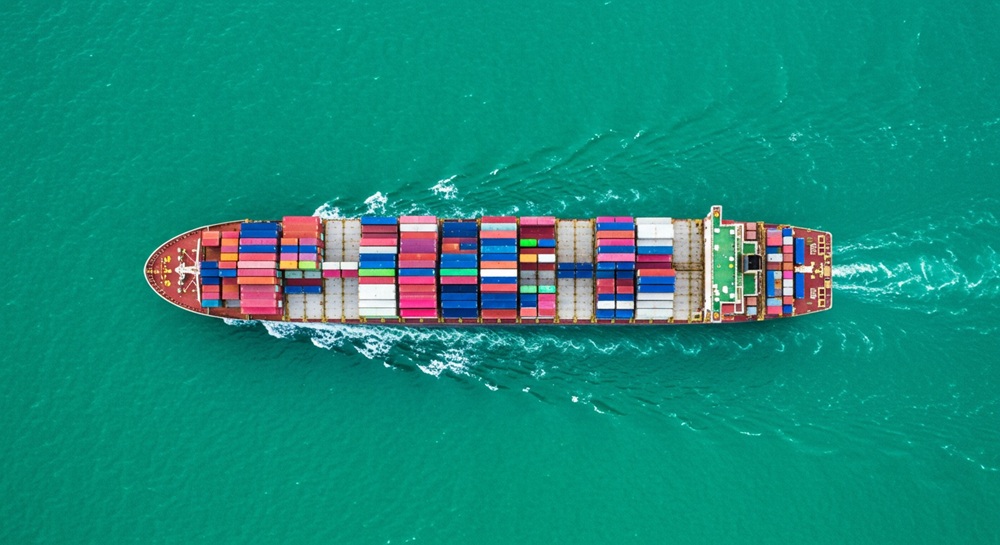The oceans are restless highways of global commerce, feeding economies and linking continents with invisible threads of trade. Every day, thousands of ships ferry crude oil, consumer goods, weapons, data cables, and people across vast, unforgiving waters.
And yet, beyond the horizon of that daily rhythm lies a complex web of threats—some visible, many concealed.
What Is Maritime Security?

Maritime security is the strategic protection of vessels, ports, shipping lanes, and maritime infrastructure from threats ranging from piracy and terrorism to cyberattacks and smuggling. But that definition only scratches the surface. Maritime security is the frontline defense for the global economy… and it’s evolving rapidly.
Maritime security encompasses a spectrum of practices and protocols designed to defend the marine environment and related assets. That includes ships, ports, offshore platforms, and critical trade routes. It’s the invisible scaffolding that supports everything from your local supermarket’s imported produce to global diplomatic negotiations.
Historically, this field was anchored in the fight against piracy. Today, its scope is far broader—addressing everything from illicit trafficking and environmental crimes to state-sponsored sabotage and ransomware attacks on shipboard navigation systems.
Common Threats on the Open Sea
Though it may seem distant, the ocean is far from lawless. Here are the key threats that maritime security must confront:
- Piracy & Armed Robbery: While often associated with the Gulf of Aden or West Africa, pirate attacks can erupt anywhere commerce flows and enforcement falters.
- Human Trafficking & Smuggling: The sea remains a conduit for shadow economies, moving everything from narcotics to desperate migrants.
- Maritime Terrorism: Ports, ferries, and tankers have all been targets—some successfully attacked, others narrowly spared.
- Cyberattacks: Modern vessels and port systems depend on software vulnerable to intrusion, espionage, and ransomware.
- Illegal Fishing & Environmental Exploitation: Unregulated fleets can devastate ecosystems while dodging international scrutiny.
The sea doesn’t sleep. And neither do the actors who exploit it.
Who Guards the Oceans?
Maritime security is a shared burden. Navies and coast guards enforce territorial waters, while international coalitions monitor high-risk zones. Organizations like the International Maritime Organization (IMO) set global standards, yet enforcement often falls to individual countries—each with their own priorities.
Meanwhile, private maritime security companies like ALK Global Security play a growing role. These firms bridge the gap between regulation and reality. Whether guarding merchant vessels through volatile regions or securing offshore energy sites, our expertise often spells the difference between deterrence and disaster.
The Role of Maritime Security Companies
Think of maritime security companies as tactical consultants. They offer services such as:
- Risk assessments and voyage planning
- Armed or unarmed personnel on board
- Training for crews and captains
- Cybersecurity audits and incident response
- Port facility security consulting
These companies don’t just provide muscle. They deliver intelligence, foresight, and adaptability. The best among them tailor protection strategies to the vessel, route, and cargo involved. Certification matters too—firms compliant with the ISPS Code or SOLAS standards signal professionalism and accountability.
When selecting a provider, vet them thoroughly. Ask about real-world experience, transparency in reporting, and alignment with international law. A glossy brochure doesn’t mean they can handle a boarding attempt at sea.
Modern Security Measures and Technology at Sea
The days of a ship’s security being limited to binoculars and a radio are long gone. Now, layered systems provide overlapping protection:
- Surveillance: Thermal imaging, radar, drones, and satellite feeds monitor high-traffic areas around vessels and facilities.
- Access Control: Smart locks, biometric checkpoints, and perimeter sensors fortify port terminals.
- Cybersecurity: Firewalls, encryption, and threat monitoring software are essential defenses aboard today’s digitized ships.
- Crew Training: Drills, scenario planning, and anti-piracy protocols empower crews to respond decisively under pressure.
Technology is only as effective as the humans using it. A hardened server means little if your crew clicks the wrong email.
Regulations That Shape Maritime Security
Several key international frameworks form the backbone of maritime security:
- ISPS Code: Enacted after 9/11, the International Ship and Port Facility Security Code is a cornerstone of global maritime protection.
- SOLAS (Safety of Life at Sea): One of the oldest treaties still in effect, this agreement mandates lifesaving and safety measures aboard ships.
- Regional Treaties: Initiatives like ReCAAP (Regional Cooperation Agreement on Combating Piracy and Armed Robbery against Ships in Asia) fill in gaps where international oversight is thin.
Compliance isn’t optional. Ships and facilities that ignore these regulations risk fines, detentions, or far worse—being unprepared when danger arrives.
Where Maritime Security Is Headed
As ships become smarter, so do the threats. Artificial intelligence is now being deployed to monitor maritime patterns, detect anomalies, and predict illicit behavior. Meanwhile, cybercriminals probe vulnerabilities in real time, sometimes funded by hostile states or cartels.
The future will also bring new challenges: the militarization of shipping lanes, climate-induced displacement via sea routes, and increased scrutiny on sustainable maritime practices.
Security must evolve beyond fences and firepower. It must anticipate, adapt, and remain nimble in an environment that never stops moving.
Maritime security is a global necessity. From safeguarding billion-dollar cargo to protecting human lives, it operates at the crossroads of commerce, geopolitics, and survival.
Understanding what maritime security entails, and knowing which maritime security companies are equipped to support your operations, can make all the difference when you’re charting a course through high-risk waters.
Whether you’re a shipowner, port manager, or simply curious about what maritime security looks like then we can help. At ALK Global Security Solutions we pride ourselves on mitigation and strategic response. Reach out to us today to request a quote!
